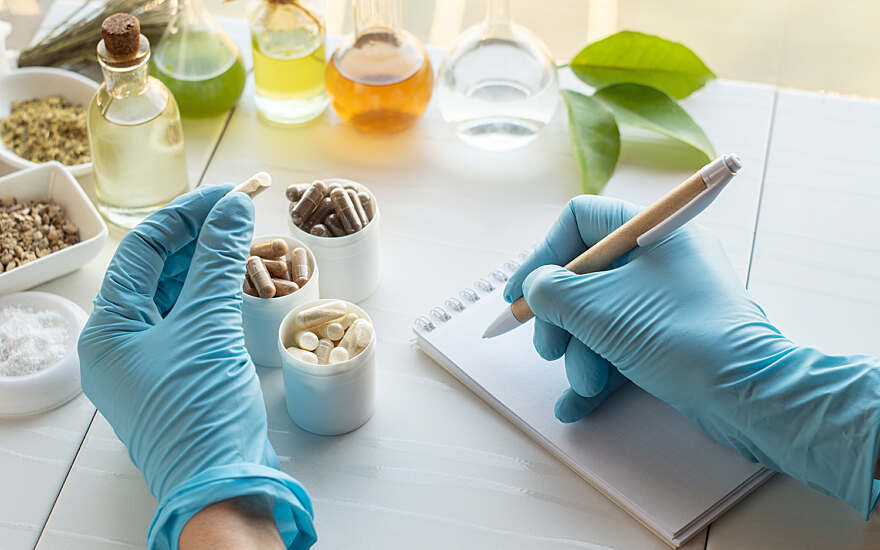
SPIN project developing nutritional supplement to support immune system in the fight against infection by SARS-CoV-2
The SPIN (SPermidin and eugenol INtegrator for contrasting incidence of coronavirus in EU population) is a European project powered by EIT Food that is currently developing a dietary supplement supporting the function of the immune system in the fight against SARS-CoV-2 infections in population at high risk.
This food supplement has been formulated to be rich in the wheat germ polyamine, Spermidine, that plays a crucial role in favouring autophagy and a broad-spectrum antiviral essential oil, rich in Eugenol, which acts by decreasing viral ability of replication.
As a part of the EIT´s Crisis Response Initiative, this activity directly contributes to the European Union´s response to the COVID-19 pandemic. The SPIN project is coordinated by the University of Bologna and participated by these key partners: IMDEA Food, Institute of Animal Reproduction and Food Research of the Polish Academy of Sciences, Molino Naldoni, Targeting Gut Disease, and Xeda.
This supplement is intended to cover the timeframe in which the vaccine is not yet available to all and afterwards, to mitigate contagious and symptom severity with the use of a natural, antiviral approach. It is not intended to replace or enhance the vaccines that are currently in development.
The consortium is already working to identify the best available sources of raw materials for high Spermidine content (wheat germ) and eugenol (clove bud essential oil). The best active ingredient sources will be processed to obtain the final supplement that will be tested with different in vitro cellular models with the purpose of providing further scientific evidence for the protective role of the supplement.
Eugenol has proven to be a broad-spectrum antiviral compound with the potential capacity of inactivating different viruses, including coronavirus, and avoiding virus replication into host cells. Spermidine intake has been significantly associated with a reduced risk of death from all major causes. It acts through several mechanisms, including a crucial role in the autophagy pathway, tightly controlled by cellular metabolism.
It has been recently demonstrated that SARS-CoV-2 infection limits autophagy by interfering with multiple metabolic pathways, and that the presence of exogenous Spermidine reduces SARS-CoV-2 propagation in vitro. It would theoretically involve hindering or inhibiting the progression of the disease towards the more serious pulmonary forms, representing the existent mortality risk for those who contract SARS-CoV-2 and develop Covid-19.
This supplement represents an innovative strategy to help in the fight against the virus by using natural antiviral ingredients. For this reason, a pool of training programmes for dieticians and nutritionist will be organized in Poland, Spain and Italy to highlight the importance of food supplements for preventive purposes.
Pending the launch of an effective vaccine, it is necessary to enhance the immune system of the population, thereby reducing the number of infections and diminishing, in case of such, the severity of the symptoms.
Moreover, this supplement may prove to have a protective activity against other viruses such as influenza, which may also pose a threat of epidemic in the EU population.
For more information, please contact Lorena Carrillo.
About
The project’s consortium is set up by leading Institutions and companies dealing in the Food arena:
- The Alma Mater Studiorum - University of Bologna (UNIBO) is the oldest and one of the most important institutions of higher education in Europe. As a comprehensive research university, UNIBO invests in multidisciplinary cross-cultural approach and in connecting research and teaching.
- The Institute of Animal Reproduction and Food Research (IARFR) is an interdisciplinary research centre focused on the mechanisms of environmental impact on the well-being of humans and animals.
- IMDEA Food is a research Institute aiming to undertake world class research into food, nutrition and health, and to identify nutritional strategies of economic and social value.
- Molino Naldoni is an industrial mill with updated technological solutions, very high standard quality control on both wheat and the finished products, ongoing research, and a diversified proposal of wheat and milling methods.
- Targeting Gut Disease (TGD) is a start-up of the University of Bologna focused on the analysis and conception of food and nutraceuticals products based on natural extracts with anti-inflammatory and anti-dysbiotic effects on gastro-intestinal apparatus.
- XEDA is a chemicals company offering plant protection waxes, packing machinery, labeling systems, chemical application equipment, and post- harvest chemicals.
